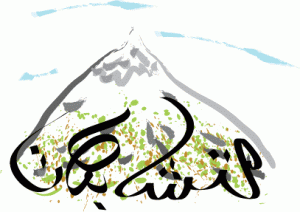If you’ve read part 1 and part 2 of this blog post, you’ve discovered the balance between the two types of Quranic verses: mutashabehat and muhkamat. You’ve also discovered how beautiful the mutashabehat are. But should we really reflect upon all those beautiful symbols in the Quran? Since the mutashabehat don’t have a clear meaning but can resemble many things, wouldn’t it be better not to reflect upon them and avoid all the uncertainty?1Some take that position and cite the following verse as their motivation:
He is the one who revealed the Book to you. It comprises verses that are unambiguous [muhkamat], they are the foundation of the Book, while others are unclear and allegorical [mutashaabehat]. As for those in whose hearts is deviance, they follow what is unclear and allegorical thereof, seeking discord and its (absolute) interpretation. No one knows its (absolute) interpretation except God. Those firmly grounded in knowledge say, “We believe in it. The whole of (the Book) is from our Lord.” Yet only those possessing intellect understand (3:7).
Is interpreting the symbols really forbidden? Let’s read a little closer. What’s forbidden is the specific context mentioned in the verse: a deviant heart that ignores the muhkamat and interprets the mutahsabehat with the intention to do harm. These people seek an interpretation that causes disunity & disharmony.
How can an interpretation of a symbolic verse lead to disharmony? One way is that the interpretation is itself not in harmony with the rest of the Quran—and nature. It must be consistent with the whole book. For example, in part 1 of this blog post we discussed the “garment of God-consciousness” and how it connects to Adam and Eve’s nakedness when they ate of the tree. This interpretation is in harmony with the rest of the Quran (in fact, the verses mentioning the garment and Adam and Eve becoming naked are just a few verses apart: 7:22 & 7:26).
If someone interpreted that the “garment of God-consciousness” is what blades of grass wear every night, then this would be an interpretation that’s not in harmony with the rest of the Quran. Any interpretations in disharmony with the Quran will also lead to discord beyond it.
Another part of verse 3:7 is that no one knows the absolute meaning of the symbols in the Quran. Only God does. Only God holds the keys to the mysteries of the Universe. That doesn’t preclude our striving and searching for answers. We can gain a piece of the answer but will never know it in its entirety. No one knows the absolute truth about anything.2 We can study the physics of space but the more we learn, the more we realize we don’t know. By us not knowing and striving for answers, the Creator sets the stage for a beautiful student/teacher relationship!
Remember verse 59:21, mentioned in the previous post. This verse acknowledges the mutashabehat and tells us that their purpose is for us to reflect and engage our minds:
Had We sent down this Quran upon a mountain, you would have seen it humble itself and split apart from fear of God. Thus do We provide examples to mankind so they may reflect (59:21).
Thinking about the Quran’s symbols and allegories, seeking their deeper meaning, allows us to experience the Quran’s beauty for ourselves—each of us individually. It engages our minds and sparks our imaginations. Imagine the magnificence of a mountain whose peaks are so grand that they pierce the highest clouds. Yet even these dominant structures split apart and crumble from their humility and fear of God. Now contrast this with the hearts of some people that are so hardened and sick with arrogance that no amount of truth penetrates.
Everything in our existence is connected. When you see how the many symbols in the Quran are in harmony with each other and how they’re in harmony with nature, you begin to breathe an awareness of the beauty that surrounds us.
Reflecting on the mutashabehat is not only allowed, but it’s commanded. What’s not allowed is going to extremes, like only following one type of verse and ignoring the other, especially with the intention of being dishonest and doing wrong.
Footnotes:
1. Mutashabehat most literally means things which “resemble each other.” In terms of the Quran, it refers to verses that are symbolic and allegorical, as the meaning of one concept resembles meanings of another.
2. No person’s knowledge of anything is complete, since we are not God. This verse explains it best, “[…] Above every possessor of knowledge is a one (more) knowledgeable” (12:76). If a person’s knowledge were complete, then they wouldn’t need the Creator.We are all inherently dependent and always in need of God, The Independent.
